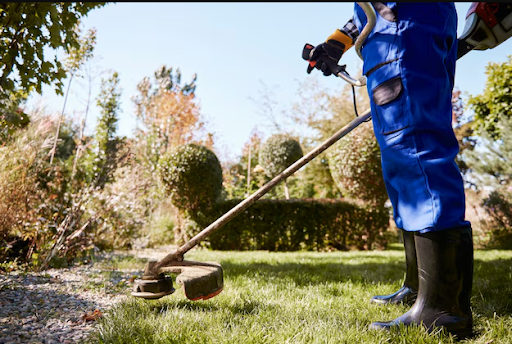Role of Pest Control Services in Your Lawn Treatment

Maintaining a healthy, vibrant lawn isn’t just about regular watering and mowing. It’s also about maintaining your lawn manageably, so pests do not get out of hand. Professional pest control services play a pivotal role in creating and maintaining pest-free lawns.
In this blog, we’ll dive into the role pest control services play in effective lawn treatment. Each role they take on not only promotes the health of your lawn but also contributes to a safer and more enjoyable outdoor space. Read on!
Understanding Lawn-Specific Pest Issues
When it comes to lawn treatment, understanding the types of pests that can damage your lawn is the first step. Not all pests are the same, and not all can be managed in the same way. Professional pest control services have deep knowledge and hands-on experience with a variety of common lawn pests.
For instance, grubs are the larvae that feed on grass roots and are notorious for causing brown patches. Chinch bugs are tiny but destructive pests that puncture grass stems and suck out the sap.
Pest control experts know how to identify these pests early on, saving your lawn from widespread damage. By recognizing the specific patterns of destruction and signs of these pests, they can tailor a treatment plan that targets the actual issue rather than taking a generalized approach.
Prevention and Early Detection of Pest Infestations
Early detection is important in lawn treatment because it prevents small infestations from escalating into widespread issues. Pest control services incorporate routine inspections as a part of their maintenance program, looking for early warning signs of pest activity.
Certain parts of the lawn may be more susceptible to infestations due to shade, moisture levels, and other reasons. By monitoring these hotspots, pest control specialists catch problems before they spread.
Pest control experts also understand that soil health plays a significant role in pest control. Compacted or nutrient-deficient soil can attract pests looking for an easy meal. In contrast, well-balanced, well-aerated soil creates a hostile environment for pest breeding.
Customizing Pest Control Treatments for Long-Term Health
One-size-fits-all pest control approaches don’t work for lawns because every lawn requires a personalized approach. Pest control experts analyze factors like soil composition, climate, grass type, and existing vegetation to create a tailored pest control treatment plan.
Different pests are active during different seasons. For instance, grub activity tends to peak in late summer to early fall. Pest control services adjust their treatments to target pests during their peak activity periods, maximizing the effectiveness of each treatment.
Using pesticides for all parts of your lawn can harm beneficial insects and damage the surrounding environment. Professional pest control services focus on precision application, targeting the pests directly without spraying the entire lawn with pesticides.
Monitoring and Maintenance for Sustainable Lawn Health
The work doesn’t end once pest control treatments have been applied. Long-term lawn care involves ongoing monitoring and maintenance to ensure the lawn stays pest-free. Pest control services take a proactive approach, scheduling follow-up inspections based on the lawn’s new needs.
For example, regular soil tests can reveal imbalances or deficiencies that could attract pests. Pest control professionals use this information to fine-tune treatments and recommend soil amendments, fertilizers, or other interventions to keep your lawn pristine.


